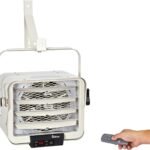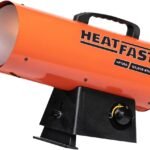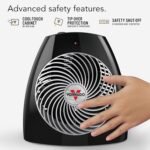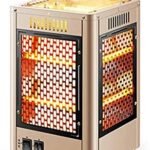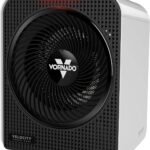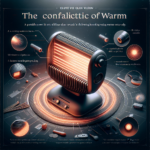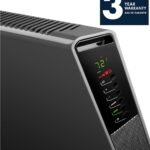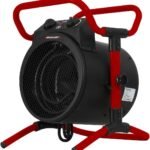Table of Contents
A tankless, or on-demand, water heater only heats water when you need it. These water heaters give you an endless source of hot water, all while saving money on energy costs. Tankless water heaters heat water directly without the use of a storage tank. When a hot water tap is turned on, cold water travels through a pipe into the unit. We know that purchasing a water heater requires much thought. Tankless.Best can help you select the best water heater.
How We Choose Products For Our Tankless Water Heater Reviews
Wondering how we’ve chosen the products that we review on tankless.best? Curious to learn more about the process of water heater reviews? Get the inside scoop now – here are the factors we take into account when choosing products for our water heater reviews.
Consultation With Plumbers And Professionals
First, we started the process off by interviewing professionals in the plumbing industry – from water heater installers to HVAC support staff, industry customer service representatives, and more.
Professional plumbers are a reputable source of information for our water heater reviews – so we’ve considered their input, brand preferences, and other factors closely while picking out products to recommend to our readers.
By compiling a list of brands and models that were repeatedly mentioned and approved by plumbing professionals, and cross-referencing them with the products that showed up in other buying guides, and had great online reviews, we were able to determine which products will work the best for you, your home, and your family – and use this information to develop informed, useful, and comprehensive tankless water heater reviews.
Brands With Great Reputations
We’ve made it a point to seek out brands that are reputable and well-known on the market. This includes brands like Bosch, Eccotemp, Stiebel Eltron, Takagi, Rheem, Marey and so much more. We’ve considered brands from all over the world, to give you the most comprehensive set of water heater reviews anywhere on the internet.
But we didn’t stop there. Not all tankless water heaters are alike, even from the same manufacturer. So we’ve looked at units of all different sizes, fuel types, and designs. By poring over reviews on websites like Amazon, customer feedback on Lowe’s and The Home Depot, Menard’s, and in-person interviews with owners of specific tankless water heater units, we’ve been able to compile a comprehensive list of each unit’s benefits – and shortcomings – in our water heater reviews.
We’ve used this information to determine which units offer the best value for the money – providing reliable performance with low yearly maintenance costs, and energy-saving designs that will help pay for themselves over time.
Special Features
Tankless water heaters are not all about flash and special features, but we have noted units that incorporate some special features. And, where appropriate, these features can help you get better performance, higher energy-efficiency, and much more. Some of the features that we looked at included:
Computer-controlled monitoring
Using microprocessors, some “smart” tankless water heaters can easily read incoming water temperature and then adjust the energy output of the burner or electrical element automatically.
What does this mean? It means you’ll get a more steady water temperature, and use less energy. In the winter, for example, when your water is at an ambient temperature of 60 degrees Fahrenheit before entering the element, the microprocessor can read the temperature – and add 35 degrees of warming power to bring it to your preferred temperature, say 100 degrees Fahrenheit.
Conversely, in the summer, if the water is at an ambient temperature of 80 degrees, the microprocessor can add just 20 degrees of heat – which ensures you always use minimal energy for your hot water at all times.
Water flow control
If you start running more hot water than your tankless heater can produce at any given time, one of two things will happen – the temperature will drop, or the flow rate will decrease.
With flow rate control, the latter is what will occur. Your flow rate will slow, but the water will still be at the proper temperature. In our opinion, this is a great feature – because showering in a hot, yet reduced flow of water seems preferable to facing a lukewarm, or even cold shower.
Tankless water heater energy factor
The energy factor is a measurement of a water heater’s efficiency, ranked on a scale from 0.00 to 1.00. During our water heater reviews, we found that the energy factor for electric units was typically between 0.96-0.99. Gas units have more variability, ranging from 0.64-0.94.
The higher the number, the more efficient the water heater is. However, more efficient heaters can be much more expensive. In our water heater reviews, we’ve done our best to strike a balance between the long-term value of a lower power bill and the higher up-front costs of energy-efficient units, to help you choose the right unit for you.
Condensing technology
This is a feature found only in gas-based units, which allows hot gases released by the process of heating water to be recaptured and used to heat the water again – enhancing efficiency, and reducing the temperature of exhaust gases. Because the exhaust gas is only at about 100 degrees Fahrenheit, it can be vented with a less expensive venting material, compared to units without condensing technology – which helps you save on installation and venting costs.
Customer Support And Warranties
Beyond special features and overall quality of units, we’ve looked at the quality of customer support available for each unit, and from each brand. We’ve talked with customer service representatives, browsed FAQ and help sections, perused installation and repair manuals, and made an effort to understand the level of support offered by each unit, and the manufacturer.
In addition, we’ve made an effort to note information about warranty coverage, and take this into account when writing our water heater reviews – including information about product registration for warranties, requirements for warranty service, potential deductibles, length of warranty and more.
Diverse Flow Rates
Bigger is not always better. If you have a large family or tend to run a lot of appliances at once, you may be better off with a large, 10 GPM tankless water heater, which can provide up to 10 gallons of properly-heated water per minute.
But if you have a smaller family, or are more economic with your water use, you may be better served by a smaller, 4-6 GPM unit. We’ve made it a point to write water heater reviews about units of every size – so that you can find the right one for you, no matter the size of your home.
The Most Common FAQs About Tankless Water Heaters
Got more questions about tankless water heaters? Need answers? During the process of writing our water heater reviews, we’ve learned just about everything there is to know about installing tankless water heaters.
How Do They Work?
It’s simple. Instead of holding heated water in a large reservoir tank, tankless heaters use high-powered gas burners or electrical elements, which heat water to the desired temperature on-demand. Water flows through the unit and past these burners, and then through your pipes, faucets, and appliances.
How Much Do They Cost?
Usually, having your unit installed costs more than purchasing the unit itself. According to Home Advisor, the cost of purchasing and installing a unit costs just under $2,000 on average, with installation accounting for between 50-75% of the overall project cost.
Can I Install It Myself?
This depends on your confidence in your DIY skills, and local laws and regulations.
Electric units are easier to install because they do not require venting, or working with gas lines. In addition, some local and municipal building codes may require you to work with a licensed plumber to install your unit.
Consult your local guidelines – and if you do not feel confident about installing your tankless water heater yourself, hire a professional. It’s worth the peace of mind.
How Long Do They Last?
Most tankless water heaters can be expected to last 20+ years with proper maintenance, which is nearly twice as long as tank-based units. This is because there are fewer moving parts, and water is not held within the water heater for prolonged periods of time – reducing issues with corrosion, sediment deposits, and other such issues.
How Much Can I Really Save?
This depends on how much water you use, and the efficiency of your tankless water heater. However tankless systems save, on average, about 25-60% on water heating costs compared to tank-based models.
Water heating costs make up about 18% of your home utility bill – so the savings are significant. Over the years and decades, your tankless unit will more than pay for itself in energy savings.
How Do I Know The GPM Rate I Need?
The biggest risk of shopping for a tankless water heater is buying a unit that’s too small – and not having enough hot water for your home. How can you know the GPM rate you need from your hot water heater before you start shopping?
This guide from Energy.gov is a great resource. Using it, you can calculate your peak GPM requirements based on your appliances and faucets, and ensure you pick out the appropriate unit from our water heater reviews.

